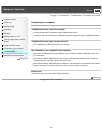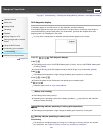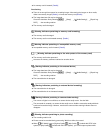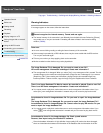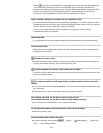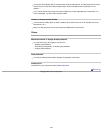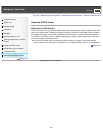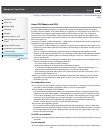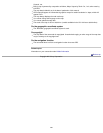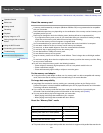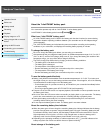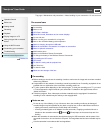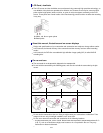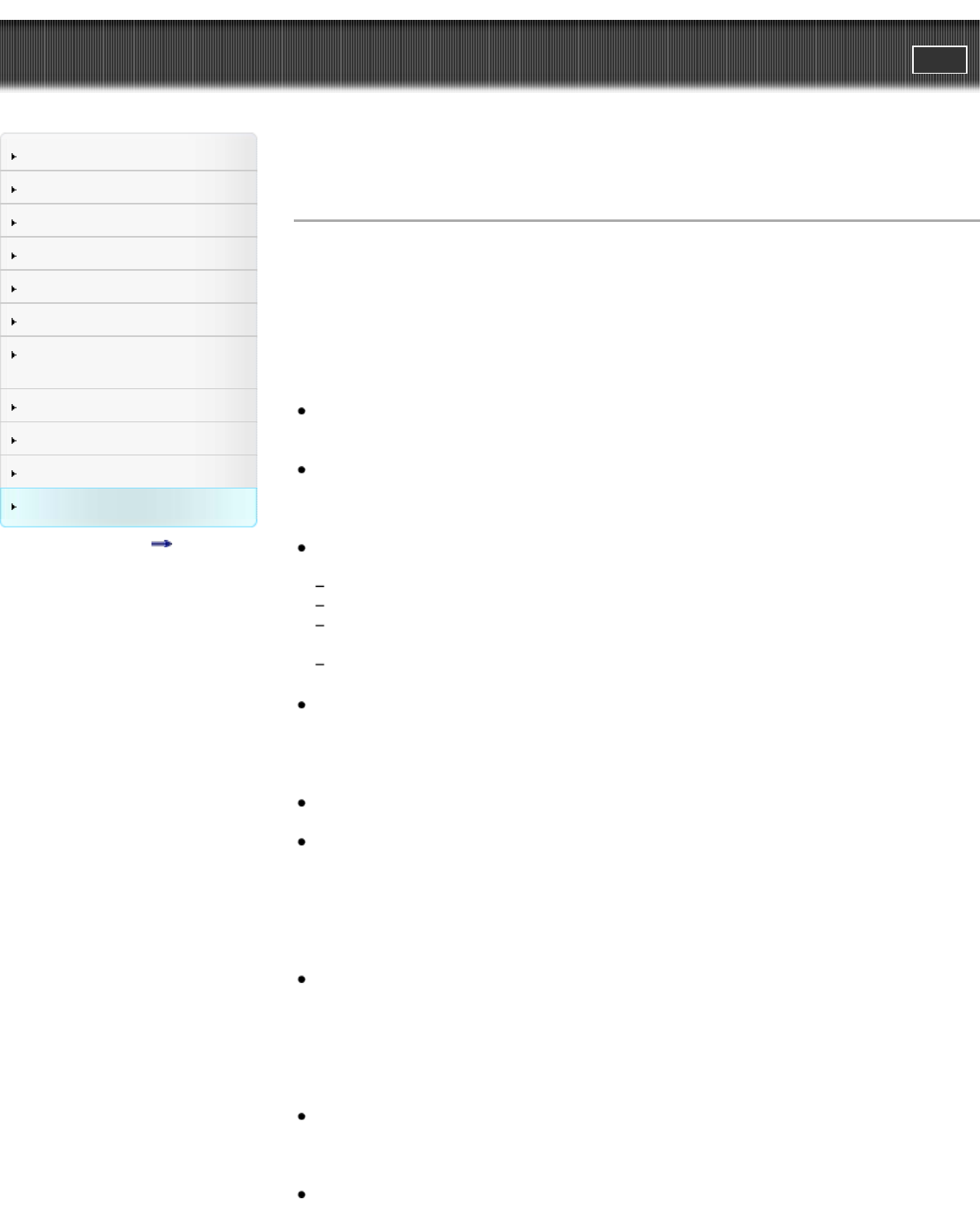
"Handycam" User Guide
PrintSearch
Operation Search
Before use
Getting started
Recording
Playback
Playing images on a TV
Saving images with an external
device
Using the Wi-Fi function
Customizing your camcorder
Troubleshooting
Maintenance and precautions
Contents list
Top page > Maintenance and precautions > Maintenance and precautions > About GPS (Models with
GPS)
About GPS (Models with GPS)
The GPS (Global Positioning System) is a system that calculates geographical location from highly
accurate US space satellites. This system allows you to pinpoint your exact location on the earth. The
GPS satellites are located in 6 orbits, approximately 20,000 km above the earth. The GPS system
consists of 24 or more GPS satellites. A GPS receiver receives radio signals from the satellites, and
calculates the current location of the receiver based on the orbital information (almanac data) and travel
time of the signals, etc.
Determining a location is called “triangulation.” A GPS receiver can determine the location’s latitude and
longitude by receiving signals from 3 or more satellites.
As the positions of GPS satellites vary constantly, it may take longer to determine the location or the
receiver may not be able to determine the location at all, depending on the location and time you use
the camcorder.
“GPS” is a system for determining geographic location by triangulating radio signals from GPS
satellites. Avoid using the GPS feature on your camcorder in places where radio signals are blocked
or reflected, such as a shadowy place surrounded by buildings or trees, etc. Use the camcorder in
open sky environments.
You may not be able to record location information when radio signals from the GPS satellites do not
reach the camcorder such as in the following situations:
In tunnels, indoors or under the shade of buildings.
Between tall buildings or at narrow streets surrounded by buildings.
In underground locations, locations surrounded by dense trees, under an elevated bridge, or in
locations where magnetic fields are generated, such as near high voltage cables.
Near devices that generate radio signals of the same frequency band as the camcorder: near 1.5
GHz band mobile telephones, etc.
When you upload to or share on the web images recorded with [GPS Setting] set to [On], location
information may unintentionally be made known to others. If you want to avoid that situation, set
[GPS Setting] to [Off].
On triangulation errors
If you move to another location right after turning the camcorder on, it may take a longer time for the
camcorder to start triangulating, compared to when you stay in the same place.
Error caused by the position of GPS satellites
The camcorder automatically triangulates your current location when the camcorder receives radio
signals from 3 or more GPS satellites. The triangulating error allowed by the GPS satellites is about
10 m (33 feet). Depending on the environment of the location, the triangulating error can be greater.
In this case, your actual location may not match the location on the map based on the GPS
information. Meanwhile, the GPS satellites are controlled by the United States Department of
Defense, and the degree of accuracy may be changed intentionally.
Error during the triangulating process
The camcorder acquires location information periodically during triangulating. There is a slight time
lag between when the location information is acquired and when the location information is recorded
on an image, therefore, the actual recording location may not match the exact location on the map
based on the GPS information.
On GPS use restriction
Use GPS in accordance with the situation and regulations of the countries/regions where you use the
camcorder.
On the map data
The camcorder contains map data for the following countries/regions. Europe, Japan, North America,
265



